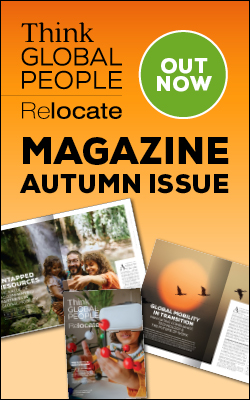More UK staff back at work but vacancies soar
Business leaders united on Tuesday to call for a relaxation of the UK's post-Brexit immigration system after official figures showed vacancies at an all-time high.

 14 September 2021
14 September 2021Related:
- Job vacancies in UK at all-time high
- How sustainable is your global mobility business?
- Is global work losing its attractiveness?
Suren Thiru, head of economics at the British Chambers of Commerce (BCC), described the record number of vacancies as highlighting "the acute hiring crisis faced by many firms".He said Brexit and the Covid-19 pandemic had driven a deep-seated decline in labour supply, which in turn was likely to dampen economic recovery by limiting firms’ ability to fulfil orders and meet customer demand.“Although the peak in unemployment will be lower than previous downturns, with rising cost pressures and an increasingly onerous tax burden likely to stifle firms’ recruitment intentions, a notable rise in job losses as furlough ends remains probable," Mr Thiru added.“Whether furloughed workers are returning to the workplace or the wider labour market after the scheme ends, it is vital that employers and the government provide the support and training they need to be re-engaged and productive.“Expanding the Shortage Occupation List will also help businesses access the skills they need when they can’t recruit locally.”Neil Carberry, chief executive of the Recruitment & Employment Confederation (REC), also called on the government to allow flexibility in the immigration system, to help fill vacancies."With the ONS vacancy count now over one million for the first time ever, and most individual sectors having record numbers of unfilled jobs, there is a real risk of shortages impacting the recovery through the autumn," he said.“Government must work with business to improve training opportunities for workers to transition into the most crucial sectors, and allow some flexibility in the immigration system at this time of need."And Yael Selfin, chief economist at KPMG, warned that there could be more pain to come. "While the pressure should ease as more people look to return to work and the furlough scheme ends," she said, "the UK labour market is set to remain choppy with vacancies taking time to fill due to skills shortages and reduced availability of overseas workers."
Read more news and views from David Sapsted.
Subscribe to Relocate Extra, our monthly newsletter, to get all the latest international assignments and global mobility news.Relocate’s new Global Mobility Toolkit provides free information, practical advice and support for HR, global mobility managers and global teams operating overseas. Access hundreds of global services and suppliers in our Online Directory
Access hundreds of global services and suppliers in our Online Directory©2025 Re:locate magazine, published by Profile Locations, Spray Hill, Hastings Road, Lamberhurst, Kent TN3 8JB. All rights reserved. This publication (or any part thereof) may not be reproduced in any form without the prior written permission of Profile Locations. Profile Locations accepts no liability for the accuracy of the contents or any opinions expressed herein.

























